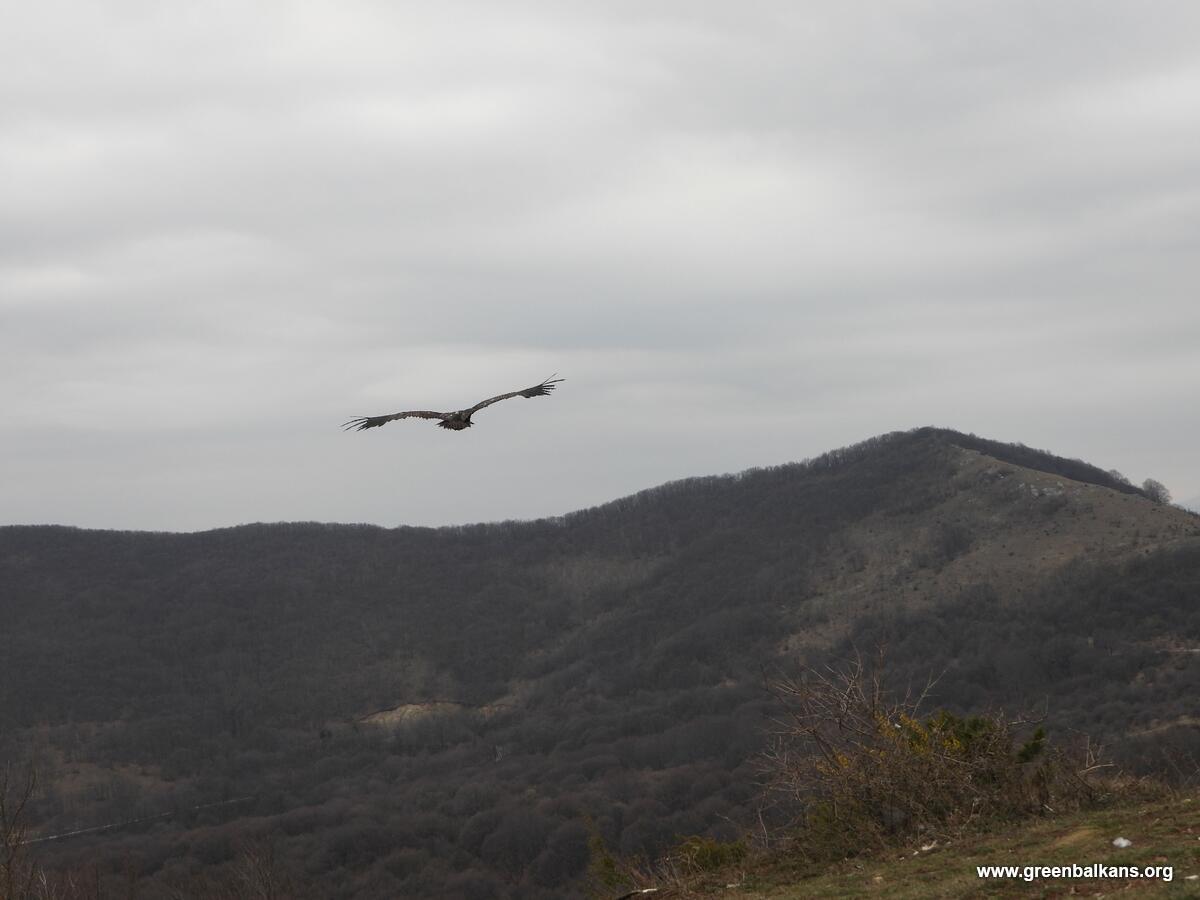
(Photo Simon Littlejohn/VCF)
The European Medicines Agency (EMA) has published last weekend their long-waited technical position on the vulture-killing drug diclofenac, following a request from the European Commission (see documents below) – they confirm that veterinary diclofenac does represent a real risk to European vultures, and therefore recommends that a number of risk management measures should be taken to avoid the poisoning of vultures, including more regulation, veterinary controls, better labeling and information and/or a ban of the drug.
This position acknowledges and supports the Vulture Conservation Foundation (VCF) arguments about the danger that veterinary diclofenac represents to European vultures.
The EMA´s position falls short of recommending one or more of the possible solutions listed as they did not have enough elements and/or remit to evaluate their effectiveness, although they recognize that only a ban would reduce the risks to zero. It is now up to the EU Commission to decide if they will start a formal referral process reviewing the marketing authorization of veterinary diclofenac (approved for sale in 5 EU countries, including Italy and crucially Spain, which holds 90% of all European vultures).
The VCF believes that the safest, simplest, and most cost-effective solution is indeed the ban on the veterinary use of diclofenac in Europe. The VCF believes the EU Commission should apply the much-taunted but often ignored precautionary principle, also because an alternative drug that is no toxic to vultures exists, and is equally cheap and available in the markets – why then risk impact on vultures by bringing expensive regulatory processes when one can decide for an outright ban of a drug that should have never appeared in the market in the first place?
Vet diclofenac is marketed by the Italian company FATRO, which used loopholes in the EU risk assessment guidelines for veterinary drugs to get it approved in Italy and Spain, in spite of a solid and massive body of evidence about its impacts on vultures and other wildlife. Veterinary diclofenac has caused a massive decline in vultures in the Indian subcontinent (95% declines of several species, driving to extinction some of the most abundant vulture species in the world in the last 20 years), and was finally banned there. Vultures provide key ecosystem services, removing tons of livestock carcasses from the countryside, and helping to control disease.
The VCF has led, in collaboration with many other environmental groups, an international advocacy and communications campaign aiming to ban veterinary diclofenac in Europe. We will continue to work with our partners to achieve our aim – prevent any risk to Europe´s vultures by eliminating this drug from the food chain. We are now lobbying the EU Commission, and the European Parliament, to address the issue, and take the only sensible and risk-free decision – #banvetdiclofenac!
What can you do?
Here are five things you can do to help us (For Vultures!) this holiday season
-
Sign the change.org petition on veterinary diclofenac – see https://www.change.org/p/janez-poto%C4%8Dnik-european-union-diclofenac-the-vulture-killing-drug-is-now-available-on-eu-market-ban-it-now
-
Write to your MEP about the issue. Please use, adapt and/or translate template letter below. The contacts of your MEP are here – http://www.europarl.europa.eu/meps/en/map.html
-
Write to Commissioner for Health and Food Safety Mr Vytenis Andriukaitis (cab-andriukaitis-webpage@ec.europa.eu) and put in copy Commissioner for Environment, Maritime Affairs and Fisheries Mr Karmenu Vella (cab-vella-external-petitions@ec.europa.eu). You can use the template email below.
-
Send twitter on the matter to Commissioners Andriukaitis and Vella (@V_Andriukaitis & @KarmenuVella)
-
Send an email to FATRO (comunicazione@fatro.it) asking them to stop commercializing veterinary diclofenac. You can copy-paste the text below.
Many thanks!
![]() CVMP/EMA final report Diclofenac_CVMP_Report_1412.pdf Adobe Acrobat Document 1.0 MB Download
CVMP/EMA final report Diclofenac_CVMP_Report_1412.pdf Adobe Acrobat Document 1.0 MB Download ![]() CVMP/EMA summary Diclofenac_CVMP_Summary_1412.pdf Adobe Acrobat Document 127.7 KB Download
CVMP/EMA summary Diclofenac_CVMP_Summary_1412.pdf Adobe Acrobat Document 127.7 KB Download ![]() Template letter MEPs MEP diclofenac letter December 2014.docx Microsoft Word Document 17.1 KB Download
Template letter MEPs MEP diclofenac letter December 2014.docx Microsoft Word Document 17.1 KB Download ![]() Template email to FATRO Template email to FATRO.docx Microsoft Word Document 15.9 KB Download
Template email to FATRO Template email to FATRO.docx Microsoft Word Document 15.9 KB Download ![]() Template email to EU Commissioners Template letter to Commissioners.docx Microsoft Word Document 16.4 KB Download
Template email to EU Commissioners Template letter to Commissioners.docx Microsoft Word Document 16.4 KB Download



